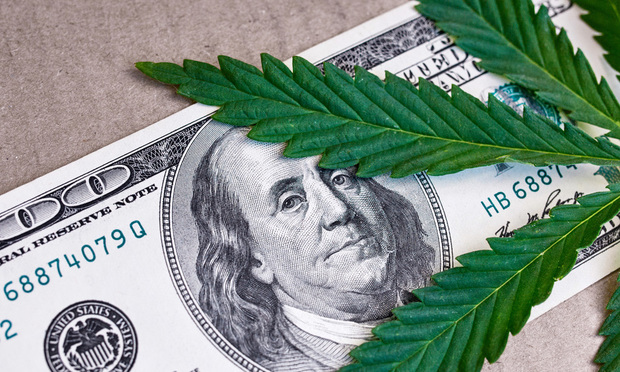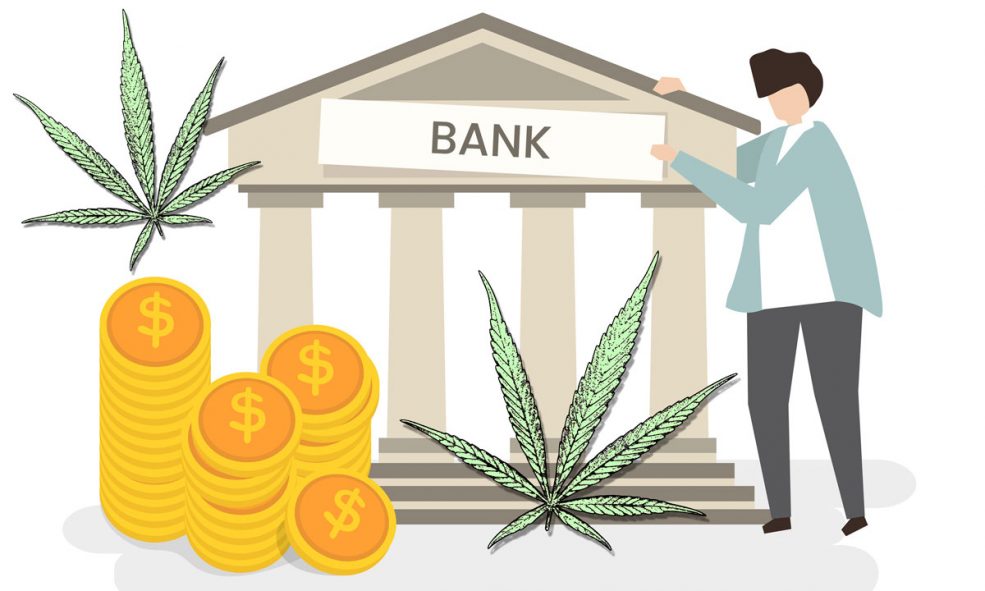Independent Community Bankers of America (ICBA) supports cannabis banking bill
With the SAFE Banking Act, a “safe harbor” can be provided for depository institutions that offer covered businesses with a “financial product or service”
A cannabis banking bill authored by U.S. Reps. Ed Perlmutter (CO-07) and Denny Heck (WA-10) has received support from the Independent Community Bankers of America (ICBA).
If approved and passed, the Secure and Fair Enforcement Banking Act (SAFE Banking Act) will provide businesses in the cannabis space with access to the banking system, without worrying about retaliation from the federal government.
“As the voice of the community banking industry, ICBA’s support of H.R. 2215 is a meaningful step forward in the effort to pass legislation to align state and federal law as it relates to cannabis-related businesses,” said Perlmutter.
He stressed the importance of granting financial institutions the ability to service cannabis businesses, not only for the purpose of fair employee treatment but also, to minimize the risk of assault, robbery, and crime.
If the cannabis bill is passed, Perlmutter believes it will prevent money from being funneled into drug cartels, which would essentially demolish the black market.
CUNA also supports the cannabis bill
 As many as 5,700 banks are represented by the ICBA. Those banks are of varying charter types and sizes.
As many as 5,700 banks are represented by the ICBA. Those banks are of varying charter types and sizes.
Since the ICBA announced their support, the Credit Union National Association (CUNA) has also jumped on-board.
“Credit unions operating in states where marijuana is legal have members and member businesses involved in the marijuana market who need access to traditional depository and lending services, the absence of which creates a significant public safety issue,” CUNA President and CEO Jim Nussle said in a letter of support for the SAFE Banking Act.
Perlmutter responded to the CUNA’s support for the cannabis bill, saying he appreciated the union’s efforts to “align state and federal law and allow legitimate cannabis-related businesses access to the banking system.”
Cannabis industry conflict has caused legal concerns
 At the current time, financial institutions who work with cannabis businesses are vulnerable to “aiding and abetting” which, under the Controlled Substances Act and federal banking statutes, is deemed to be money laundering and a federal crime.
At the current time, financial institutions who work with cannabis businesses are vulnerable to “aiding and abetting” which, under the Controlled Substances Act and federal banking statutes, is deemed to be money laundering and a federal crime.
“The conflict between state and federal law on cannabis-related businesses has created significant legal and compliance concerns for financial institutions that could provide needed banking services to these companies,” said the ICBA President and CEO, Rebeca Romero.
“This uncertainty has forced cannabis-related businesses to operate mostly in cash, which presents a significant public safety risk. The bipartisan Secure and Fair Enforcement Banking Act would help eliminate this risk in states where cannabis is already legal,” Romero added.
With the SAFE Banking Act, a “safe harbor” can be provided for depository institutions that offer covered businesses with a “financial product or service.”
SAFE Banking Act will solve cannabis-related banking problems

Support for the cannabis bill is growing by the day, with a total of 92 cosponsors voting in favor of H.R. 2215 and a Senate companion bill S. 1152.
Congressional leaders received a letter at the start of 2018 from a bipartisan group of 19 state attorneys general, prompting the acceptance of H.R. 2215.
Created to eliminate uncertainty for cannabis-related businesses, the SAFE Banking Act will safeguard federal banking regulators from threatening or restricting the federal deposit insurance of a credit union or bank.
Furthermore, the SAFE Banking Act will prevent federal banking regulators from restricting banking services or downgrading loan agreements.
“Independent community bankers intimately know and respect their customers because they are also their neighbors. They know these businesses are in good standing with the law and the community and can be compliant financial actors,” said Heck.
“Now is the time for more in the financial industry to follow their lead and back the bipartisan SAFE Banking Act, and effectively bridge the gap between state and federal law,” he added.








